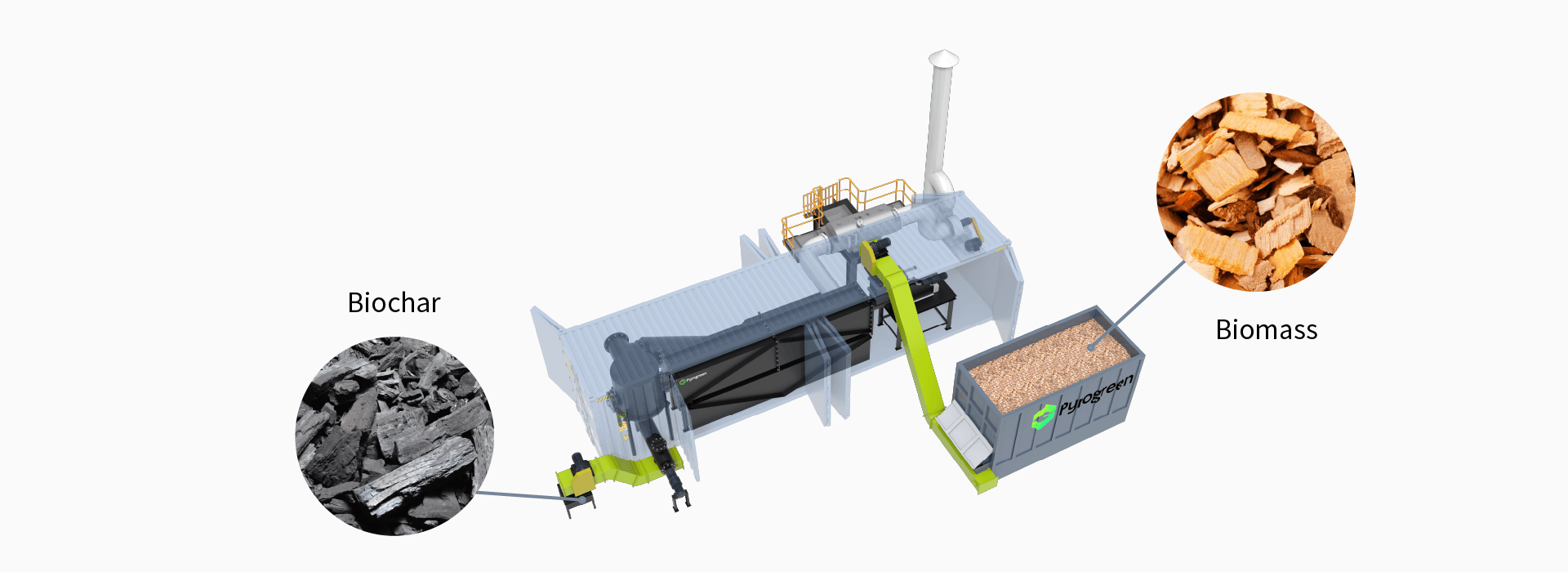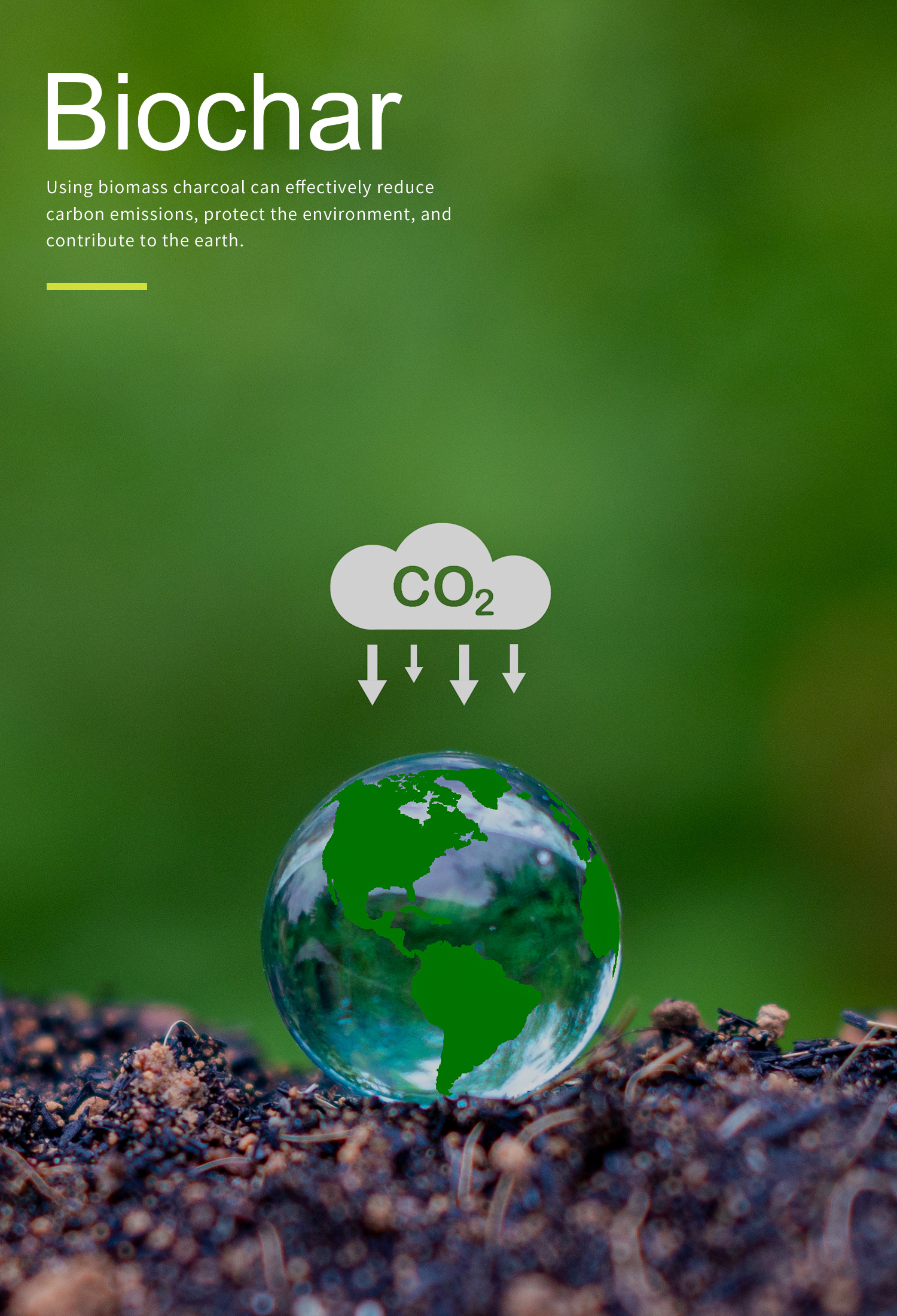“Biochar, Green Energy,
a Carbon-reduced Future.”
Biochar can also be used for soil improvement, carbon sequestration, etc., and plays a variety of environmental protection roles.
Biochar is made from pyrolysis of biomass materials such as wood, straw, fruit shells, etc., so it is a renewable resource and helps reduce dependence on non-renewable energy.
The preparation process of biochar is relatively environmentally friendly and does not produce a large amount of pollutants and greenhouse gases, which is beneficial to reducing the impact on the environment.
By reducing the percentage of cement in concrete, biochar minimises the carbon footprint of construction materials.Biochar improves concrete's thermal insulation capacity and enhances mechanical properties such as compressive and flexural strength.
Biochar can be used as a soil
conditioner to improve soil
structure and increase soil
fertility, which is beneficial to the growth of crops.
The carbon in biochar can be stored in the soil for a long time, which helps slow down the increase of carbon dioxide in the atmosphere and has a certain mitigating effect on climate change.
Different Raw Materials Can Get Different Biochar
Pyrogreen 's biomass energy conversion technology can serve as a solution to the current problem.
The Pyrogreen ProductsBiochar is a carbon negative, charcoal based, soil amendment that can be designed to help reclaim and improve marginal soils by increasing soil water holding capacity and enhancing fertility, while also generating high-value renewable energy co-products during its production.
If deployed correctly, the biochar process is carbon negative: it removes net carbon from the atmosphere. When a green plant grows, it takes CO2 out of the air to build biomass. All of the carbon in the plant came from CO2 taken out of the air, and returns to the air when the plant dies and decomposes. When the biomass is instead pyrolyzed—heated in the absence of oxygen—it produces charcoal, which is called biochar when it is buried in the ground. Over 40% of the total carbon from the waste biomass is retained in biochar and sequestered in the soil for thousands of years, effectively removing that carbon from the atmosphere.
The carbon in 1 ton of biochar is equivalent to about 3 tons of CO2.
Biochar is not only a carbon sink, it can increase soil fertility.

















